
|
Jersey. Channel Islands, Great Britain / New Zealand
|
|
About Jersey |
|
Troy family history |
|
My family |
|
Our home |
|
Our horses & animals |
|
Morris Minors & Vmax |
|
E.Troy Ltd |
|
The occupation years |
|
Shuttlers Badminton |
|
Interesting snippets |
|
Contact us |
|
What's New |
|
Links |
|
Guest book comments |


|
Some of the stories & facts of my family who lived through the five year German occupation of Jersey, the only part of Britain taken in World War 2.
My father Richard Troy served in the First World War from 1917 to Feb 1919. He fought in Italy in the Calvary machine gun corps then in the R.N.A.S ( Royal Navel Air Service) and later RAF ( Royal Air Force) as airman, ground staff. My father Richard Troy in the First World War saw active service at Otranto Italy and executed raids into Albania. He did various other tasks including escort duties and training as a gun layer (WW1 aircraft gunner). All his elder brothers had also voluntary joined up. When the second world war came along he was too old to enlist and also was married with four young children. He decided to stay and not evacuate to the UK as the Germans advanced closer. His lorries were immediately confiscated by the Germans and his business had to cease. He greatly disliked the Germans occupying Jersey because of his experience of them on active service in the First World War and was determined not to work with them or for them.
|
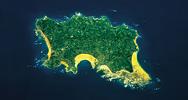
|
©Troy Family publications 2001-25 All rights reserve8
|
|
Updated every 3 months . Last update Nov 2025 |
|
Jersey |
|
November 25 |
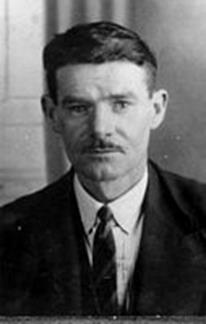
|
Website administrator Maurice R. Troy |
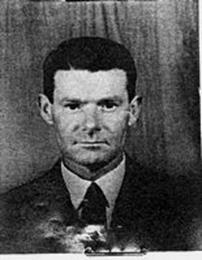
|
Right; The picture on my fathers ID card No 24225 taken for the German Occupation on 22/01/1941 The ID card was authorised by Mr. E Le Boutillier, Centenier of the Parish of St. Clement. He was 42 years old. |
|
Left; A picture of my father taken just after Liberation Day in 1945. He had lost a considerable amount of weight and had aged compared to the 1941 picture. |
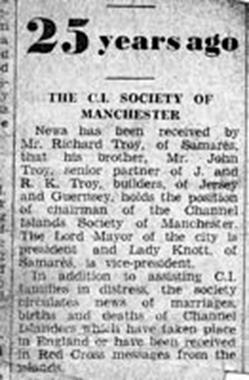
|
Right: This appeared in the Jersey Evening Post during the Occupation and again 25 years later.
THE C.1. SOCIETY OF MANCHESTER News has been received by Mr. Richard Troy, of Samarés, that his brother, Mr. John Troy, senior partner of J. and R. K. Troy, builders, of Jersey and Guernsey, holds the position of chairman of the Channel. Islands Society of Manchester. The Lord Mayor of the city is president and Lady Knott, of Samarès, is vice-president. In addition to assisting C.I. families in distress, the society circulates news of marriages, births and deaths of Channel Islanders which have taken place in England or have been received in Red Cross messages from the islands. |
|
He refused to work for the Germans and they confiscated his four lorries which then put him out of business. Later at the end of the occupation he said he regretted not working for them when he saw how rich others without principles had become. |
|
He worked as a horse bus driver, jobs in agriculture( spraying tomatoes, etc.) and towards the end of the occupation making sugar from sugar beet with Bill Le Plongeon and other friends. At nights he worked for the Waterworks Company as a night watchman at Baxter’s mill in Grand Vaux to supplement his wage. It was while at night watch work at the mill that he discovered a German soldier had fallen down an open well in the grounds, the man was injured and in the water but conscious. My father was able to climb down with the use of a ladder and bring him up. When a passing group of soldiers passed he attracted their attention and they took the soldier away. The next night whilst at work there was a knock at the door and a high ranking German officer with two soldiers asked my father his name. The officer shook his hand and complemented him for what he had done and said he could have easily left him there to die and no one would have known. Apparently the soldier my father had helped was in hospital and under military arrest, he had left his barracks to fraternize with a local girl and had been taking a short cut to miss the patrols. My father told me he never thought twice about rescuing him as he was just a human being even though he was a German soldier. |
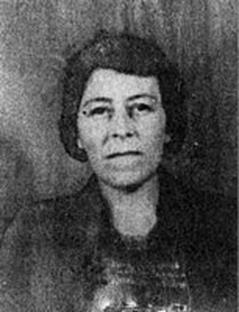
|
Right: My mother Eva Marianne Rose Troy as it appeared on her ID card in the occupation taken on the 23/1/1941. She was 33 years old |
|
I was only born during the very end of the German occupation so do not remember any of it but my brothers and sisters lived through it and have many memories and experiences of those times which I hope to tell you. Things like my brother Dick being shot at for throwing stones at the German stables in the FB playing fields and him breaking in to the Pomme D’or Hotel and stealing German medals, bayonets and helmets, my father cutting and stealing wood for fuel in the dead of night with his brother Bob, Mr Tardivel, Mr Le Vesconte Mr Gray and others. The German notice saying they were going to demolish his and Mr Hambly’s house to allow the railway track to be built to the east through the FB playing fields. His and his brother Bill’s hidden crystal set. The Russian slave entering our house searching for food. Our house being searched whilst my father was working at night and my mother using her extra rations she was given for being pregnant to her small children, giving the slaves some shoes and my sister Mary persuading a Todt guard ( Russian, Polish and Spanish slave guard ) to throw away his beating stick. etc….to be continued later
Good links to this subject on my links page.
|
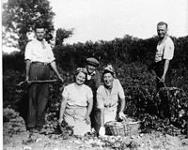
|
My father first left and my Aunt Nancy front right, digging potatoes by hand. |


|
If you have any comments you would like to add about anything on this website please contact the website administrator.
maurice@troyfamily.co.uk |
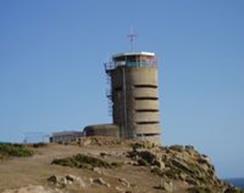
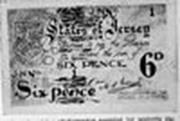
|
A States of Jersey 6d note used during the German Occupation as well as the German money that was in circulation. |
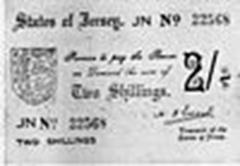
|
A States of Jersey 2/- note used during the German Occupation. |
|
Jersey is the most fortified part of Hitler’s western front and still a big attraction for visitors to the Island. |
|
Once when coming home in the early morning after his night shift and whilst pushing his bike (which incidentally had home made rubber tyres) along Grand Vaux he saw some ducks. Picking up a stone he threw it and luckily hit a duck which he retrieved and stuffed into his jacket. My mother told me that in the evening the family had a good feed and next day soup was made. |
|
Note.
My new
troyfamily co.nz
web site has started .
Link to it on my “What’s new page” |
|
Articles from the British newspapers in June 1940 |
|
CARGO SHIPS IN EVACUATION OF CHANNEL ISLANDS
DOZENS of passenger steamers, paddle-boats, cement ships and cargo boats helped in the voluntary evacuation of the Channel Islands. Ten vessels arrived in Weymouth during one morning. A Roman Catholic priest said: “When I left a white flag was flying over Guernsey, and it was thought that the enemy might come at any time.” I was also told, however, that many of the residents of the islands had decided not to leave, writes a news reporter The Jersey States Parliament decided last week to issue the following proclamation: “At this anxious hour we wish the people of these islands to note for their guidance and assistance in the decision which each must take for himself and his own, that we are remaining at our posts to carry on our duties and that we are, all of us, keeping with us in these islands our wives and families.” 8.700 REGISTERED The bailiff of the island also spoke from the Royal Square and stood on a chair so that the people might see that he had not left. It was stated at the meeting of Parliament that up to that day 8,775 people had registered as willing to leave the island. I was also told that all the young men of military age were asked to leave the islands for the mainland, where they will join the forces. When the refugees arrived in Weymouth they were taken to various centres and given food. Some of them had been at sea for 19 hours, and there was another long wait in Weymouth before they were sent to their destinations. The station yard was filled with hundreds of men, women and children, many of the women carrying babies, and by evening several children had fallen asleep on the little piles of cases and parcels—all that the people could bring. “GOODBYE TO HOME” One man said: “We have asked again and again where we are to go, but we cannot find out. I have bought my children cakes and given them something to drink while we have been waiting here and, of course, we were given food when we arrived, but we have been in the station yard now for several hours.” An official stated that most of the refugees would probably be sent to the Midlands and to the North of England. Some would go to Lancashire. We had only 24 hours’ notice that they were to leave, and we were told that we could only bring very little luggage,” said a Guernsey headmaster. “The children have been ‘bricks.’ We came on a cargo boat, and it was not a good crossing. I have turned the key in my own door, left everything, and said goodbye to my home. I wonder if I shall ever see it again.” Rum sold at 2s. 6d. “I addressed the parents of the children, who faced up to the departure with courage. They cheered, kissed their children, and left them with me. We marched to the boats, so here we are. I expect that most of the parents will follow later.” Another evacuee said: “We have not been able to get the potato harvest because there were no ships to bring it out, and some time ago there was a queue of potato lorries which stretched for two or three miles. I expect the potatoes will all be bad by now. Very few tomatoes have been put in this year, and what are left have been dug in. “They were giving potatoes away in Jersey when I left, and they were selling their bottles of rum at 2s. 6d. a bottle. Some of the shops had not opened at all.” A mother who arrived with her two children complained that she had to leave her home and poultry. “It took us hours to get over because we kept stopping,” she added. “I think many of the people became very nervous, because we were only about 17 miles from Carterat in France and we often heard gunfire and loud explosions.” I was also told that the staff of the Animals Shelter in Jersey had to destroy 2,000 dogs and a number of cats. |
|
Peers criticise Channel Islands evacuation
‘GIVEN UP WITHOUT A SHOT’ LORD SIMON, replying for the Government in the Lords last night to criticisms about the evacuation of the Channel Islands, said: “I trust that the day is not far distant when, by persevering in our purpose, we have among our triumphs the supreme satisfaction of seeing these good people return to their homes.” These are some of the criticisms made and questions put by peers :— LORD PORTSEA (a native of Jersey): The islanders believed they were safe, and, as in 1914, sent all their young men to the war. They thought that supported by even a small portion of the greatest fleet in the world, they could hold the islands. They feel that, if England could not defend the islands, how can Germany? The Bishop of Winchester (the Rt. Rev. Cyril Garbett): Demilitarisation came as a tremendous blow to the islanders. Lord Strabolgi: There have been two extraordinary evacuations in this war— the evacuation of Narvik after weeks of fighting and the Channel Islands. If there is any repetition, Parliament will no longer remain silent. It is a bad precedent to abandon without firing a Shot a fief of the Crown that has been held for 800 years. Lord Mottistone: I cannot imagine what possible justification there can ever be for surrendering any particle of our possessions without a shot. The sooner the Government say that this mysterious happening is unique the better. Lord Simon said the occupation of the French coast by the Germans raised the question whether it would be a wholly uneconomic use of our military forces to endeavour to supplement a small garrison there. It was a “lamentable and distressing event” but a totally isolated case due to the islands’ geographical position. |
|
Jersey Militia Colours Laid Up When the Royal Militia Island of Jersey were brought to England last year by Lieut.-Colonel Vatcher who had commanded the Regiment for five years, they became a battalion of the Hampshire Regiment. They brought their colours with them, and the Bishop of Winchester (Dr. Garbett), who had ecclesiastical jurisdiction in Jersey, and who has taken a great interest in Channel Islands and their people, recently offered to take care of the colours in his private chapel at Wolvesey Castle. So it came about that Winchester yesterday saw a parade through its streets of Jersey men bearing the Hampshire Regiment’s name, with the addition, Royal Jersey.” The escort, 60 strong, guarded the colours with fixed bayonets, and the colours were borne by 2nd Lleuts. Babbè and Balteine, Capt. G. Fenton commanded the escort, with 2nd Lieut. Jeffery as subaltern. Among those who accepted invitations were Major-General Sir E. N. Broadbent (Lieutenant Governor of Guernsey. 1934-1939), Major-General Sir Horace Martelli (Lieutenant Governor of Jersey, 19S4-199) Major-General G. J. P. St. Clair and Brigadier J. F. Harter. Lieut-Colonel Vatcher thanked Bishop and expressed the hope that it would not be long before the Battalion returned to claim the colours and take them to their proper home again. Empire’s Sympathy Dr. Garbett said: “The sympathy of the whole Empire goes forth to the Islanders. The day will come When the invader will surely be expelled and the Islanders will regain their freedom. Until that day comes you members of the Royal Militia Island of Jersey will represent the Islands on the field of battle, and by your courage and devotion will add further glories to your ancient and noble tradition.” The Royal Militia Island of Jersey Regiment, with the Royal Guernsey Militia, has always claimed to be the oldest force in the Empire._ According to tradition, the Island militias owe their origin to the year 1200, when Pierre de Preaux was ordered by the King to call out the seigneurs and their tenants to protect the Islands from attack, While 16th century documents also contain. references to them. In more recent times it is recorded that Prince Charles inspected the Jersey Militia in 1646. |
|
On 9th May 1945 the Channel Islands were the last part of Europe to be liberated at the end of World War 2 and were the only part of British Isles to be occupied by Germany.
|
|
Wartime executions on the island of Jersey under the German occupation. (Carried out by firing squad)
On the 17/03/1941 young Frenchman Francois Scornet age 22 years was executed at St Ouens Manor. He had escaped from France in a boat and landing on Guernsey thought he was in England. He walked up the beach singing La Marseilles the French national anthem. They moved him to Jersey and executed him.
On the 02/08/1941 Louis Berrier a Frenchman was shot at a place unknown for espionage against the Germans.
During 1942 Alois Kern a German soldier was shot at La Moye point for disobeying orders.
Many more were executed on the other Channel Islands.
|
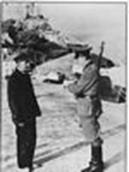
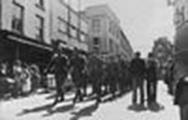

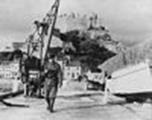
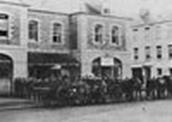
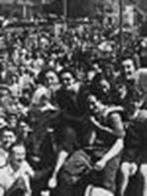
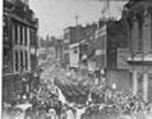
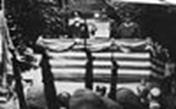
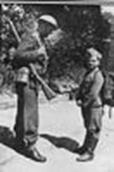
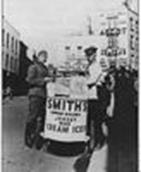
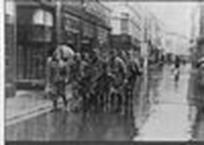
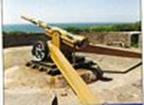
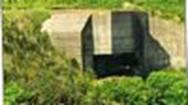
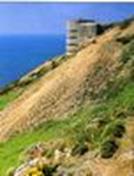
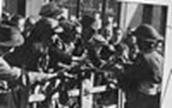
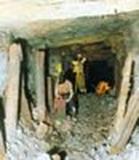
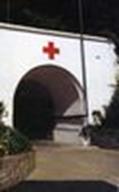

|
Celebration liberation in St Helier |
|
Liberating force marching in York St past the Town hall |
|
V.G.A.D. guard on Gorey Harbour |
|
Funeral of Oberleutnant Zepernick in Nov 1943 outside the German Commander’s HQ, now Liberation Square. |
|
German infantry outside Fort Regent over looking St Helier harbour and Elizabeth Castle. |
|
6pm 12th May 1945 Brig-Gen A.E.Snow ( O.C. Armed Forces of the Channel Islands) reading the Royal proclamation accompanied by Rear Admiral C.G.Stuaet and Lieut Col.H.R.Power, Chief of Affairs Office. |
|
Above: Conditions the Russian slaves worked under carving tunnels out at the German Underground Hospital in St Lawrence below. |
|
Fortifications built by Russian slaves |
|
German fortifications built by Russian slaves. |
|
German soldiers marching through the Parade in St Helier. |
|
V.G.A.D. official with Mr Godfrey who was harbour master at Gorey pier. |
|
German infantry outside Burton’s shop in King St. St Helier on what looks like a wet day. |
|
German soldier buying an ice cream at the top of King St near Charing Cross. |
|
A British soldier with a young Russian boy who had been used as a mascot of a German unit. |
|
Everywhere the British soldiers of force 135 were met with enthusiastic reception and handed cigarettes and sweets to the crowd. |
|
German fortifications on Jersey, the only captured part Great Britain during World War 2 |

|
Jersey Militia Evacuated from the Channel Islands, they are eagerly training in Britain, as seen in this striking picture. |


|
Gathering the only fuel left. |
|
Germans soldiers arriving after Britain had surrendered the British Channel Islands and left. |


|
Francois Scornet and below his body leaving for France after the war |
|
When the power of love overcomes the love of power, we shall have peace. |
|
My Dad's first letter to relatives in England at the end of the five year occupation explaining the terrible conditions endured in Jersey. |